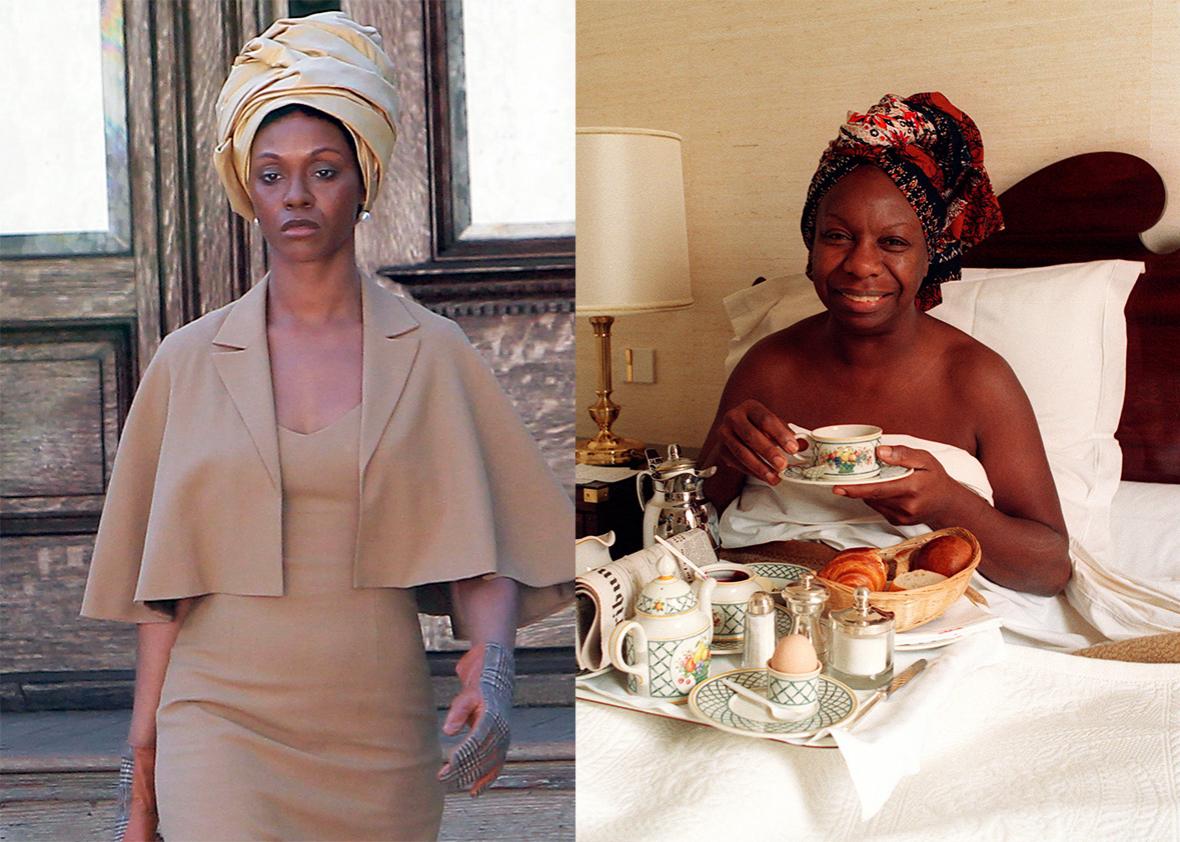This post originally appeared on the blog Very Smart Brothas. It’s reprinted with the author’s permission.
When news first broke a few years ago that Zoe Saldana would be cast in Nina—the yet-to-be-released biopic about the iconic artist and activist—I wasn’t as put off about the aesthetic dissimilarity between Saldana and Simone as many of us seemed to be. Mainly because I generally don’t believe an actor needs to be a person’s doppelganger to convincingly portray that person.
But, this is where that pesky-ass irritant called context matters. Because much of Simone’s work was specifically centered in her specific experience as a dark-skinned black woman who existed outside of America’s—white America’s and, sadly, black America’s—general standard of what’s considered beautiful. Zoe Saldana, on the other hand, doesn’t just exist within the standard. For many, she is the standard. This, for the record, doesn’t make her any less black than Nina Simone was. But it does bring up questions about erasure. Namely, why a biopic about Nina Simone, perhaps the least “Hollywood” celebrity America has even seen, would be given the Hollywood treatment? And while Zoe Saldana has a bankable name and known acting chops, when telling the Nina Simone story, it is actually vital to cast someone who favors her more. (Or, rather, favors her naturally without the aid of prosthetics.) In this specific instance, a doppelganger would be more appropriate. So, why not do exactly that?
Now, the first paragraph and the second paragraph of this might seem a bit incongruent. And that’s because they are. I began with an explanation of why I didn’t think Saldana being cast as Simone was a big deal. And then, in the second paragraph, I shifted gears and explained why it is, effectively contradicting myself. What you read is the result of what happened to me between the time I first heard the news and now. The idea that Saldana’s casting was inappropriate didn’t immediately come to me. Because I wasn’t as familiar with Nina Simone’s work and also I wasn’t immediately sensitive to the race and colorism-related concerns of an actress like Saldana being cast as her. But then I listened to what some of my friends—specifically black women more naturally sensitive to it—had to say. And I read pieces about it, followed Facebook threads concerning it, and clicked on tweets explaining it. And then, after I sought out and received more information about a subject I wasn’t as well-versed in, my opinion about that subject changed.
The concept of diversity is often thought of in aesthetic and largely superficial terms. Quotas are filled so the “urban” accounts have a pointperson and your company’s cookout group photo will look less Abercrombie and more Benetton. But what diversity, true diversity, actually does is fill blind spots. It surrounds you with people with different experiences and different knowledge bases who you can lean on and learn from when necessary. And the decision to cast Zoe Saldana—and be unprepared for the blowback/criticism—is an unfortunate but predictable by-product of the lack of it. With it, however, perhaps you have someone in the room who lets the producers and the director (Cynthia Mort) know the negative response to this news wouldn’t be worth the boost having Saldana’s name attached to it would provide it. Maybe you’d have someone who’d provide a list of actresses who’d be great and less controversial choices. And maybe someone would communicate to them that they’d risk offending the very demographic who’d be the movie’s most fervent supporters.
